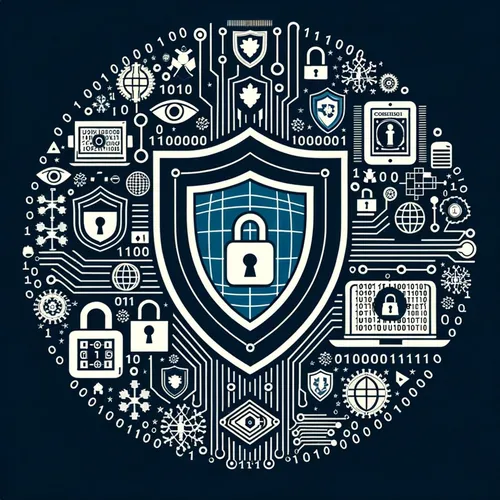Cyber Bombshell: US Races to Outpace Chinas Hacks as Zero Trust Takes Center Stage
- Author
- Quiet. Please
- Published
- Thu 29 May 2025
- Episode Link
- https://www.spreaker.com/episode/cyber-bombshell-us-races-to-outpace-chinas-hacks-as-zero-trust-takes-center-stage--66330827
This is your Tech Shield: US vs China Updates podcast.
Hey, it’s Ting—your resident cyber-sleuth and China watcher—here to give you the fast, fun, and totally up-to-date scoop on the fierce cyber chess game playing out between the US and China this week. Skip the pleasantries, let’s jack in.
This past week in the cyber trenches has been all about resilience and rapid response. The US rolled out critical vulnerability patches across federal networks, spurred by a classified advisory from CISA flagging renewed Chinese cyber espionage campaigns. Top threat: persistent access operations led by the PLA Cyberspace Force and Ministry of State Security, both laser-focused on stealing IP and mapping out our infrastructure for potential disruption. The Defense Intelligence Agency’s annual threat assessment put it bluntly: China’s not just after data anymore—they want the keys to the kingdom, with critical infrastructure access pre-positioned for possible future attacks.
Industry response? Swift and, frankly, overdue. Microsoft and Palo Alto Networks both dropped emergency updates, zeroing in on remote access tools and cloud misconfigurations favored by Chinese threat actors. Private sector players—especially in energy and transportation—coordinated live-fire incident response drills with the Department of Homeland Security. The Red Team/Blue Team exercises had real teeth this time, stress-testing everything from pipeline SCADA to air traffic communications.
On the tech front, a Cyber Expo hosted by US Space Force showcased defenses born straight from sci-fi: AI-driven anomaly detection and supply chain “digital twins” aiming to preempt everything from deepfakes to firmware backdoors. There’s a big buzz around Zero Trust—shifting away from perimeter security to “never trust, always verify.” It’s less a single tool, more a culture shift, but adoption is finally picking up speed with government mandates.
Expert take? Progress is real, especially in patch speed and cross-sector awareness. But the gaps are worrying. Many critical sectors still run legacy hardware vulnerable to precisely the kind of “living off the land” attacks favored by China. And while our advisory pipeline is solid, coordination with smaller industry partners is lagging. Offensive cyber? Still controversial—some voices, like MalwareTech’s Marcus Hutchins, argue that waiting for another SolarWinds-scale breach is reckless; others warn escalation.
Bottom line: the US shield is getting stronger, but the dragon’s claws keep evolving. This week brought momentum and a few scars, but if you ask me, the best defense remains constant vigilance—and maybe a few less default admin passwords. Stay patched, stay paranoid. This is Ting, logging off.
For more http://www.quietplease.ai
Get the best deals https://amzn.to/3ODvOta
